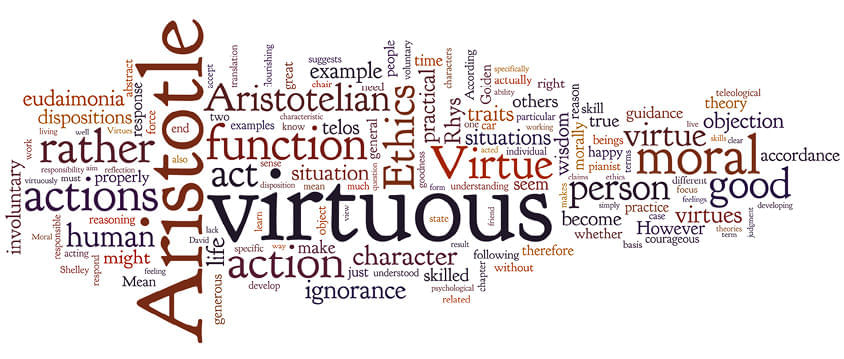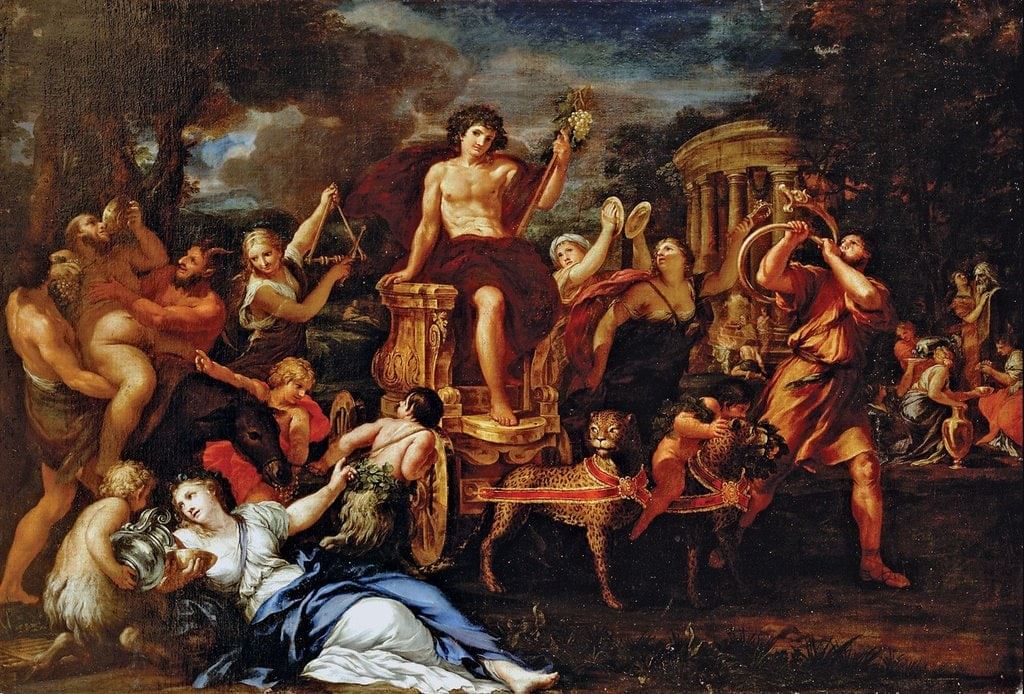Aristotelian Concept of Virtue | UPSC Mains: Ethics, Integrity & Aptitude PDF Download
Aristotelian Concept of Virtue

- Aristotle (384 BC to 322 BC) was another prominent Greek philosopher and the first to write a book on ethics in the Western world. He argued that qualities such as knowledge, courage, bravery, and perseverance alone do not constitute a morally good character or person. Their ethical value depends on the motives and values they are connected to. Therefore, Aristotle distinguishes between moral virtues and intellectual virtues. A key element in his concept of virtues is the doctrine of the golden mean.
- Aristotle is also correct in broadening the concept of the important virtue of justice, viewing it as the highest virtue.
He identifies two forms of justice:- Distributive Justice
- Remedial Justice
- Distributive justice involves the fair allocation of wealth and honors among the citizens of the state, while remedial justice focuses on ensuring fair transactions between members of the community. Virtues are developed through the habitual practice of virtuous actions. The unique virtue of humans lies in their ability to think and control their desires and passions.
- According to Aristotle, virtuous behavior involves avoiding extremes of excess or deficiency. For example, excessive indulgence is as much a vice as overly repressing desires, making self-control a virtue. Similarly, courage lies between rashness and cowardice, while generosity falls between meanness and extravagance. Therefore, virtue is about finding a balance between two vices: one of excess and the other of deficiency. Achieving this balance is challenging, as it involves doing the right thing, for the right person, to the right degree, with the right intention, and at the right time. For instance, practicing generosity means giving in the right amount, to the right person, at the right time, and with the right purpose.
Ethical/Moral Relativism
- Ethical relativism is a moral theory that argues that morality is determined by the cultural norms of a society. Whether an action is considered right or wrong depends on the moral standards of the society in which it occurs. The same action may be seen as morally right in one society but morally wrong in another. According to ethical relativism, there are no universal moral principles that apply to all people at all times.
- Ethical relativism values tolerance as its central principle.
- Ethical relativists reject the idea that there are universal, objective "super-rules" that all cultures must follow. They believe that relativism honors the diversity of human societies and accounts for the different contexts in which human actions take place.
Relation of Ethical Relativism to Normative Ethics
- Ethical relativism asserts that there are no objective or universally valid moral principles, as all moral judgments are merely expressions of human opinion.
- Ethical relativism takes a step further by asserting that the morals of a culture are appropriate for that specific culture, making it a normative ethic. To elaborate, the diversity of practices worldwide raises the question of which rules are correct. The relativist response is that no single set of rules is universally correct—right and wrong are relative. A normative ethic seeks to determine what actions should or should not be taken.
- Ruth Benedict, a cultural anthropologist, was the original proponent of this perspective, initially aiming to describe typical cultural behaviors. Her findings can be summarized by the idea that "what is normal is moral."
Ethical/Moral Objectivism
- Ethical Objectivism is the belief that universal and objectively valid moral principles exist and are not dependent on individuals or societies.
- From this perspective, the accuracy of moral judgments is independent of the beliefs or emotions of any individual or group. This view asserts that moral statements are comparable to those in chemistry, biology, or history, as they aim to depict an objective reality.
- If these statements correctly represent this moral reality, they are true, regardless of anyone’s beliefs, hopes, desires, or feelings. Conversely, if they fail to represent this reality, they are false, irrespective of personal opinions or emotions.
Ethical/Moral Absolutism
- This perspective asserts that certain principles are universal, cannot be overridden, and hold true in all circumstances.
- Moral absolutism asserts that certain moral rules are universally true, can be discovered, and apply to everyone. Immoral actions—those that violate these moral rules—are inherently wrong, regardless of the situation or the consequences.
Ethical/Moral Realism
Moral realism holds that objective moral facts or truths exist in the universe and that moral statements convey factual information about these truths.
Ethical/Moral Subjectivism
- Subjectivism asserts that moral judgments merely express an individual’s feelings or attitudes and that ethical statements do not convey factual truths about what is good or bad.
- Subjectivists explain that moral statements reflect the feelings, attitudes, and emotions of an individual or group regarding a specific issue. When someone describes something as good or bad, they are expressing their personal positive or negative emotions about it.
Ethical/ Moral Emotivism
Emotivism holds that moral claims are merely expressions of approval or disapproval. While this may resemble subjectivism, emotivism differs in that a moral statement does not convey information about the speaker's feelings but simply expresses them.
Ethical/Moral Prescriptivism
Prescriptivists believe that ethical statements function as instructions or suggestions. For example, saying something is good implies a recommendation to act accordingly, while saying something is bad conveys a directive to avoid it.
Ethical/Moral Supernaturalism
Supernaturalism links ethics closely with religion, asserting that moral rules originate solely from God. According to this view, something is good because God declares it so, and living a virtuous life involves following God's will.
Ethical/Moral Intuitionism
- Intuitionists believe that good and bad are objective, inherent qualities that cannot be analyzed or reduced to simpler components. Something is good simply because it is, requiring no further justification or proof.
- Intuitionists believe that adults can recognize goodness or badness through an innate moral sense, allowing them to perceive objective moral truths. They argue that fundamental moral truths are self-evident to those who focus their minds on moral questions and are not derived through rational reasoning.
Hedonism

- Hedonism is a philosophy that views pleasure as the ultimate good and the highest goal of life. In essence, a hedonist seeks to achieve the greatest overall pleasure by minimizing pain.
- Ethical hedonism asserts that everyone has the right to pursue the greatest possible pleasure for themselves. It also emphasizes that a person’s pleasure should significantly outweigh their pain.
- Hedonism assesses human actions based on their outcomes, specifically in terms of pleasure and pain. The value of human behavior is measured by the amount of pleasure it generates. For hedonists, the standard of morality is "pleasure." Actions that result in pleasure are deemed right, while those causing pain are considered wrong.
Psychological Hedonism and Ethical Hedonism
- Hedonism has two main forms: Psychological Hedonism and Ethical Hedonism. Psychological Hedonism asserts that pleasure is the natural object of desire, meaning humans naturally seek pleasure. This is presented as a statement of fact. On the other hand, Ethical Hedonism holds that pleasure is the proper object of desire, suggesting that humans ought to seek pleasure. This is expressed as a statement of value.
- Ethical Hedonism can be divided into two forms: Egoistic Hedonism and Universalistic Hedonism (or Utilitarianism). Egoistic Hedonism holds that an individual's own pleasure is the highest good, focusing on personal satisfaction. In contrast, Universalistic Hedonism emphasizes the pleasure of many, striving for general happiness rather than individual pleasure.
Ethical Hedonism-Gross and Refined
Ethical Hedonism, whether Egoistic or Universalistic, can be further divided into two types: Gross Hedonism and Refined Hedonism. Gross Hedonism emphasizes sensuous pleasures, considering all pleasures as similar and differing only in intensity. It prioritizes immediate pleasures over future ones. On the other hand, Refined Hedonism values mental and more subtle pleasures, recognizing the role of reason in achieving these finer pleasures.
|
78 videos|139 docs
|
FAQs on Aristotelian Concept of Virtue - UPSC Mains: Ethics, Integrity & Aptitude
| 1. What is the Aristotelian concept of virtue and how does it differ from hedonism? |  |
| 2. How does Aristotle define happiness in relation to virtue? |  |
| 3. What role does practical wisdom (phronesis) play in the Aristotelian concept of virtue? |  |
| 4. Can you explain the difference between moral and intellectual virtues in Aristotle's ethics? |  |
| 5. How does the Aristotelian concept of virtue relate to contemporary ethical theories? |  |





















